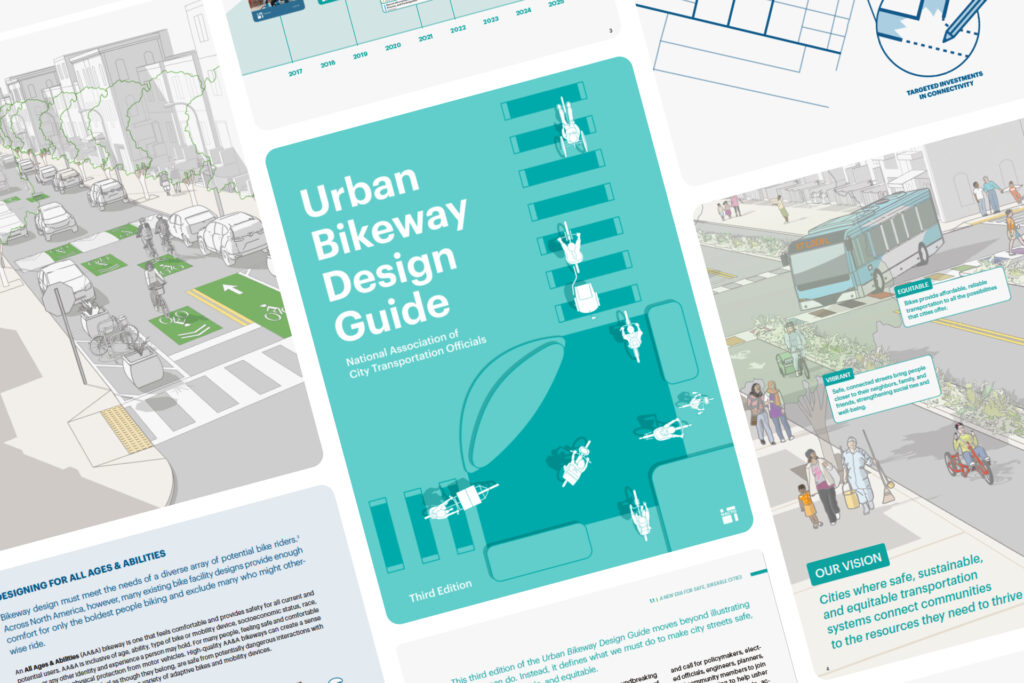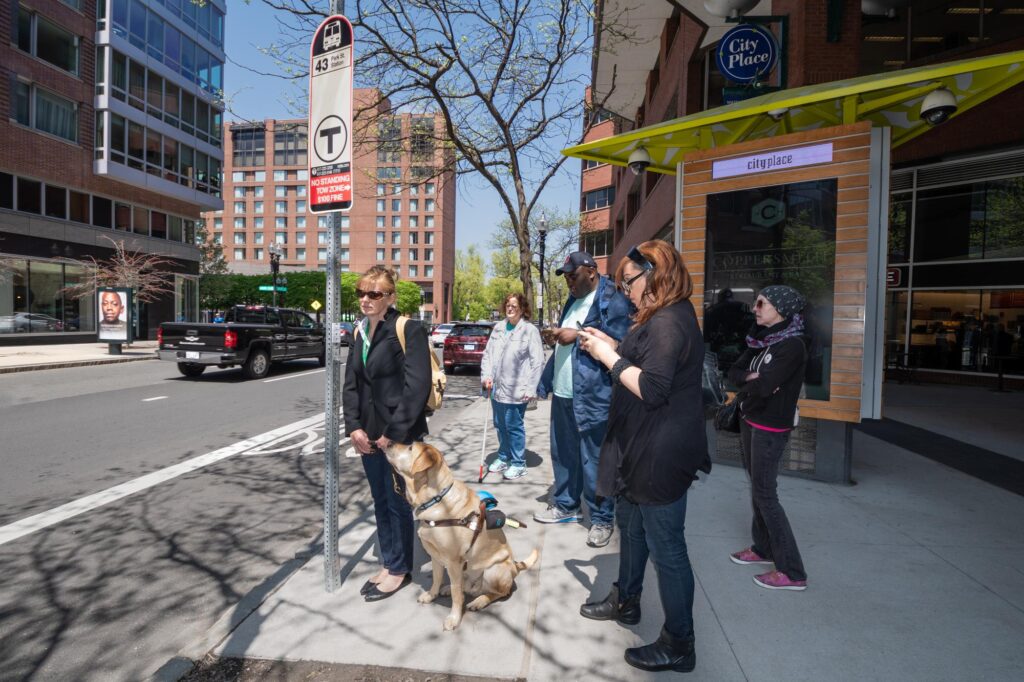Ford and GM’s requests for exemptions from federal standards raise serious concerns.
This summer, Ford and General Motors requested exemptions from Federal Motor Vehicle Safety Standards that would allow each automaker to deploy up to 2,500 self-driving vehicles without human controls like steering wheels and brake pedals.
NACTO has submitted letters to the National Highway Traffic Safety Administration (NHTSA) opposing the automakers’ exemption requests. Several of NACTO’s 91 member cities have years of experience hosting AV testing on their streets; this experience informed NACTO’s recommendations to NHTSA, and our approach to AVs generally.
NACTO has several serious concerns with these exemption requests, including that:
- Forcing vehicles operated by an Automated Driving System (ADS) into the existing regulatory framework is inappropriate and unsafe. NHTSA should instead use its rulemaking authority to establish new performance standards specific to ADS.
- The automakers’ petitions don’t meet the legal standard to receive an exemption, and exemptions should not be used to excuse non-compliance with safety standards simply because doing so would be inconvenient or inconsistent with the manufacturer’s preferred design.
- The exemptions aren’t necessary to achieve the automakers’ claimed public benefits, and they neither further the objectives laid out by the federal Vehicle Safety Act nor advance other public interests.
While NACTO’s letters make clear our opposition to these exemptions, we also write that if NHTSA does grant them, they should incorporate strict terms to ensure the public interest, and enable participation by local officials in contributing to the development and deployment of vehicles adapted for ADS.
Further detail on each of these concerns can be found in the full letters:
- View NACTO’s letter regarding Ford’s request for FMVSS exemptions.
- View NACTO’s letter regarding GM’s request for FMVSS exemptions.
Current federal vehicle safety standards were created under the basic assumption that there’s a difference between the vehicle and the driver. But with AVs, the vehicle and driver are one and the same. That means NHTSA must update its regulatory framework to ensure the vehicle—and the software system that drives it—works the way it is supposed to, safely and consistently.
NHTSA should restart the stalled rulemaking process that would objectively define, assess, and manage the safety of ADS performance, and ensure city leaders with direct experience hosting AV testing on their streets have a seat at the table. This ‘regulation-by-exemption’ approach that has filled the void makes an already murky marketplace even harder to understand, and doesn’t make anyone safer.
NACTO will host a virtual briefing for member cities to discuss the requested exemptions and NACTO’s comments on October 12th.
More information on NACTO’s approach to AV policy can be found here.
###
About the National Association of City Transportation Officials (NACTO)
NACTO is an association of 90 major North American cities and transit agencies formed to exchange transportation ideas, insights, and practices and cooperatively approach national transportation issues. The organization’s mission is to build cities as places for people, with safe, sustainable, accessible, and equitable transportation choices that support a strong economy and vibrant quality of life. To learn more, visit NACTO.org or follow us on Twitter at @NACTO and Instagram at @NACTOcities.
Press Contact
Alex Engel | [email protected]
Billy Richling | [email protected]
For Immediate Release
September 22, 2022



